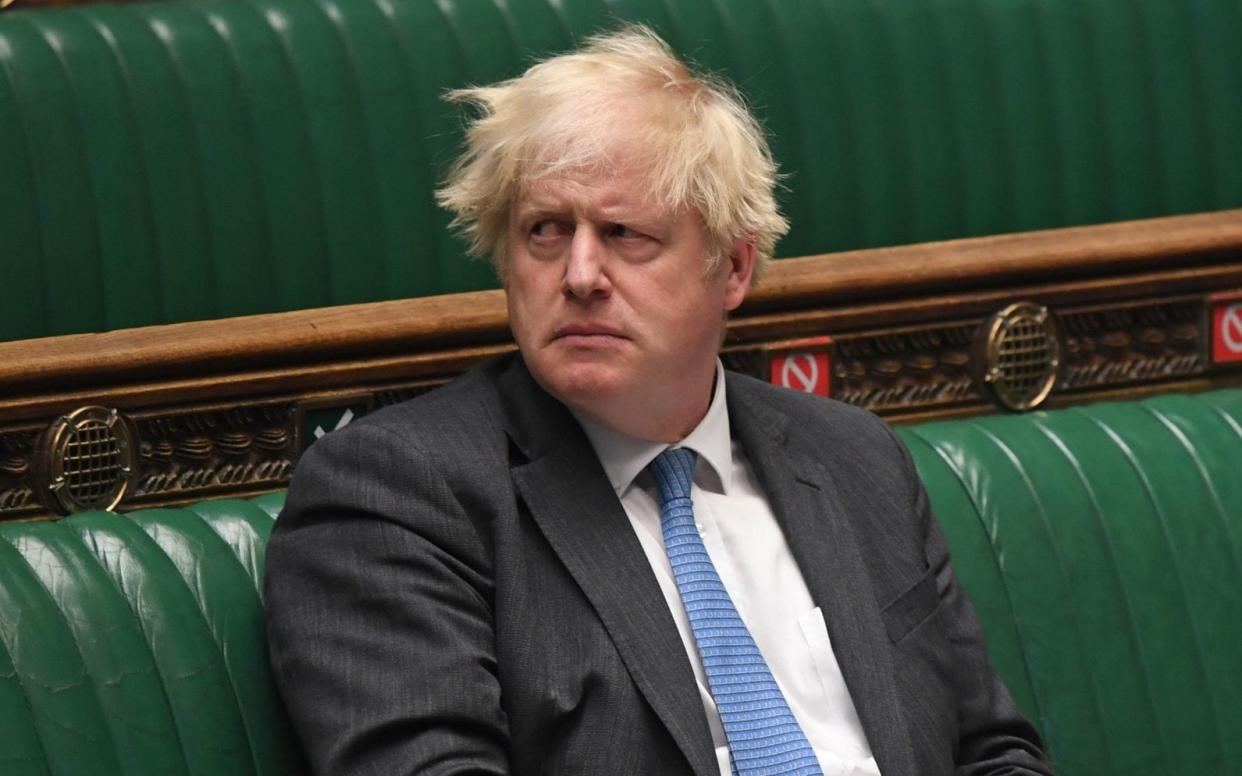Boris Johnson under renewed pressure to reveal social care plans

- Oops!Something went wrong.Please try again later.
Boris Johnson came under renewed pressure on Wednesday night to come forward with his social care plans, as six former health ministers backed plans to reform the workforce and drive up pay and standards.
In the absence of the long-awaited reforms, a cross-party group of former ministers, trade unions and care bodies have thrown their backing behind a new framework to improve conditions for social care workers.
Drafted by the pressure group Future Social Care Coalition, it urges the Prime Minister to mirror the people's plan implemented by the NHS, including increasing care worker pay to the real living wage and establishing a national register of workers.
The reforms are seen as vital to addressing the current recruitment and retention crisis in the sector, which currently has more than 100,000 vacancies.
The blueprint is being launched at a summit on Thursday, which will be attended by Jeremy Hunt, the former health secretary, as well as Labour’s shadow social care minister Liz Kendall and Prof Martin Green, the chief executive of Care England.
The recommendations are backed by former Tory and Labour health secretaries Stephen Dorrell and Andy Burnham, as well as former health and social care ministers Phil Hope, Sir Norman Lamb, Alistair Burt and Paul Burstow.
Other proposals include establishing a binding charter to promote good practice and drive up standards across the sector, standard training, and the establishment of a Royal College of Social Care.
It comes after the Prime Minister faced criticism on Tuesday after a meeting with the Chancellor Rishi Sunak and Health Secretary Matt Hancock to discuss the reforms was postponed.
While Mr Johnson promised to fix social care when he first entered Number 10 almost two years ago, there are now growing tensions in Government over how to pay for it, with ministers committing only to bring forward proposals by the end of the year.
An announcement is not expected until the autumn.
Mr Johnson wants to adopt a plan first drafted a decade ago by Sir Andrew Dilnot, which would introduce a lifetime cap on individual costs to prevent people from having to sell their home to pay for their care.
While Mr Johnson wants this cap to be set at £50,000, the plans are being met with resistance from the Treasury over the estimated £10 billion-a-year price tag. A debate is now raging as to whether to lift the cap or hike taxes to pay for it.
The Prime Minister has ruled out hiking income tax, VAT and national insurance (the three biggest revenue raisers) to pay for the reforms, which senior economists warn has left Mr Sunak with little wriggle room.
Helen Whately, the care minister, has insisted that ministers were determined to bring forward “hugely ambitious” reforms by the end of the year.
Speaking in the Commons, Ms Whately suggested that a long-term plan would go beyond addressing how care costs are funded and include greater integration with the NHS, as well an overhaul of the quality of care.
She also confirmed that ministers were looking at issues such as workforce planning, including improving skills, training, pay and career opportunities for care workers.
However, ahead of Thursday's summit Mr Hope, who served as Labour’s minister for care services between 2008 and 2010, said: "Covid has highlighted many of the long-term problems that continue to blight social care, particularly the need for an immediate, substantial and sustained injection of funding, alongside long-overdue reform of the sector.
"Many people will need social care at some point in their lives, which is why we need to act now to overhaul how the sector, and its workforce, is treated.
“That is why it is so bitterly disappointing to hear that plans for a high-level Government meeting to progress plans for reform have been deferred. Now is the time to get social care done."

